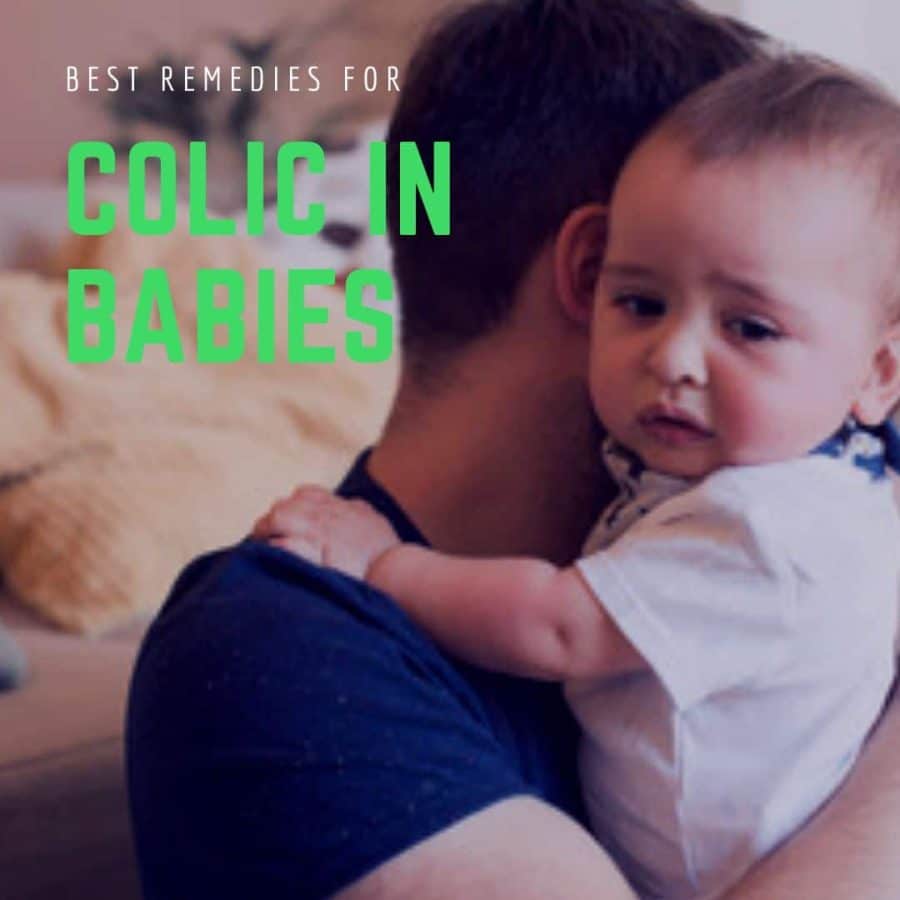Baby colic is when an otherwise healthy newborn has episodes of fussiness and high-pitched crying for more than three hours a day, for more than three days a week, for more than three weeks. Colic is most common in infants of six weeks of age. The episodes are predictable and usually happen in the evening. It typically goes away by six months of age.
Doctors haven’t been able to determine the cause for colic. Some theories state that colic might be caused due to gastrointestinal discomfort, food allergies, or early onset of a migraine, but the definite cause is still unknown.
A colicky baby can cause parents’ stress, depression, and frustration. It is a stressful time for the entire household.
There are no determined treatments for colic. However, certain remedies are useful to pacify babies and also offer some relief to the caregivers.
Some common remedies for colic that you can try are:
Burping
Even though intestinal cramping has been ruled out as a cause for baby colic, excessive crying also causes the baby to swallow more air. Gently rub your baby’s back after feedings for proper burping to release swallowed air.
Swaddling
Swaddling helps infants feel comforted, and dimmed lights reduce visual stimulation. Swaddling your baby and placing him or her in a darkened room has a calming effect.
White Noise
Place your baby near a low constant soothing white noise. White noises such as vacuum noise or dryer noise calm babies.
If you do not own any such appliances, then you can get a white noise machine, which is easily available on the web.
Chiropractic Care
The birthing experience is traumatic for babies. A chiropractor can use expert techniques to soothe the baby. You can easily consult a practitioner for your baby’s health and see a positive effect.
A chiropractor for kids perform chiropractic adjustments that help:
- Improve colic symptoms
- Relieve fussiness and earaches
Some people visit a chiropractor for migraines only. That’s because they aren’t aware that these practitioners can help improve their babies’ immunity and cure many other ailments.
Holding
Sometimes simply holding the baby can be quite effective and make them feel comforted.
Movement
Place your baby in a swing or a vibrating baby seat. If you can, then take the baby out for a drive. The vibrations and movements have a calming effect on babies.
Having a colicky baby can make parents severely exhausted and stressed. Here are some tips for parents, to help them keep their health in check as well-
- Take Turns – Figure out a schedule with your partner and take turns when caring for the baby. The burden of the colic should never fall on just one parent. You will get through this together.
- Sleep when your baby does. Since colic episodes usually occur during the evening, it means you may face frequent sleepless nights. So sync your sleeping schedule with your baby’s. Even a good two-hour nap will help you push through these difficult days.
- Help from friends and family. Don’t shy away from reaching out to your friends and family for help. It is a struggle to keep up with a colicky baby and the support of your friends, and family will help you navigate through this.
- It will be over soon. Commonly, colic goes away by six months of age. That period of time will be hard, but you need to keep reminding yourself that it will not last forever.
- Ask for help. If you feel like you are under severe and uncontrollable stress, anxiety, and depression, then get professional help. You can get counselling and medication, which has been proven to be effective.
- Eat well. Dealing with a colicky baby demands physical and mental strength. Take a proper, nutritious diet and try to indulge in some sort of exercise.
- Don’t blame yourself. Do not blame yourself or your partner for your baby’s health condition. This in no way undermines your parenting skills. Be kind to yourself.
Taking care of a colicky baby is difficult, exhausting and frustrating. But stay strong, as this too shall pass.




